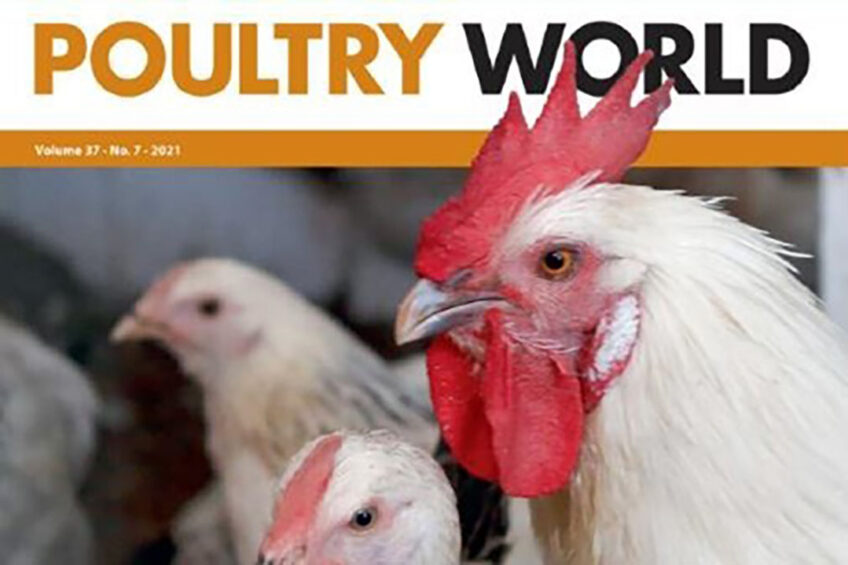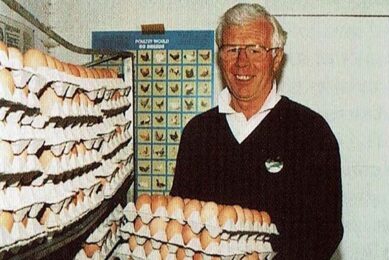Poultry World edition 7 of 2021 now online

In this 7th edition, Poultry World investigates the recent decision by the EU to lift the ban on the use of animal by-products in animal feed, a decision which has been welcomed by the industry. Then, a farm report from Finland explores how to excel in antibiotic-free broiler production. Also, an in-depth review of the best options for replacing soybean meal in feed for various livestock species in terms of benefits, availability, challenges and outlook.
View number 7 issue of Poultry World
EU lifts ban on using animal by-products
The EU has lifted its ban on the use of animal by-products for animal feed. The proposed change in legislation, which has been welcomed by the industry, allows processed animal protein from pigs to be used in poultry feed and from poultry to be used in pig feed. Poultry World explores.
Farmers aren’t the problem, they are the solution
Global climate change is an ever-present concern and many highlight protein consumption and its production as a contributing factor, but it is actually farmers who are the stewards of our planet and can be its saviour. Poultry World reviews the findings from the annual Alltech ONE Ideas conference.

Saudi Arabia’s changing poultry landscape
Local poultry producers in Saudi Arabia are being encouraged and incentivised to drastically increase production while the Saudi Food and Drug Authority implements several new measures that will significantly affect the poultry import market.

Excelling in antibiotic-free broiler production
Finland has worked for decades to become antibiotic-free. In this article, poultry producer and executive director of the Finnish Poultry Association, Hanna Hamina, explains how she has successfully raised her flocks without the use of antibiotics for over 10 years.

View number 7 issue of Poultry World
Controlling red mite infestation with garlic
Recent research has shown the benefit of adding garlic to feed as an alternative strategy that can be used to control and reduce poultry red mite infestation in laying hens. Poultry World reviews these positive results.

Examining heat stress in poultry
A study by the Technical University of Munich reveals that heat stress in poultry can lead to a multitude of problems, including a decline in egg laying rates.

Five most-promising soybean meal alternatives
A comprehensive review offers the best options for replacing soybean meal in feed for various livestock species in terms of benefits, availability, challenges and outlook.

Tomato peel and rosehip improve egg quality
In a recent study, researchers conclude that the supplementation of tomato peel in laying hens diets improves egg weight and vitamin E content, while rosehip seeds serve as a natural antioxidant that can improve egg quality.

View number 7 issue of Poultry World
Interview: Gaining a better understanding of probiotics
In this interview, Marcelo Lang, global marketing director at Chr. Hansen, explains how understanding the modes of action of probiotic bacteria will enable you to make the most informed product choices for the animals in your care.

Moving away from skip-day feeding in broiler breeders
Dr Martin Zuidhof, professor of Poultry Systems Modelling and Precision Feeding at the University of Alberta, explains why skip-day feeding is not the best production strategy to use from a profit standpoint.

Egg sector facing onslaught of alternative proteins
There is a strong capital push into alternative proteins with over US$3 billion invested last year. However, Dr Klaus Kraemer, CE of leading nutrition think-tank Sight and Life, explains why consumers should question the sustainability of alternative proteins, considering their nutrition and environmental impact.

Boosting turkey reproductive output
The daylength timing mechanism that regulates reproduction provides only a seasonal window when animals, like turkeys, can reproduce. Researchers are now seeking to develop strategies to overcome the constraints that the seasonal cycle imposes.

To access the magazine section, where you will find the 7th edition of Poultry World 2021 as well as other magazines from specialists in the agriculture industry, simply register for free.









